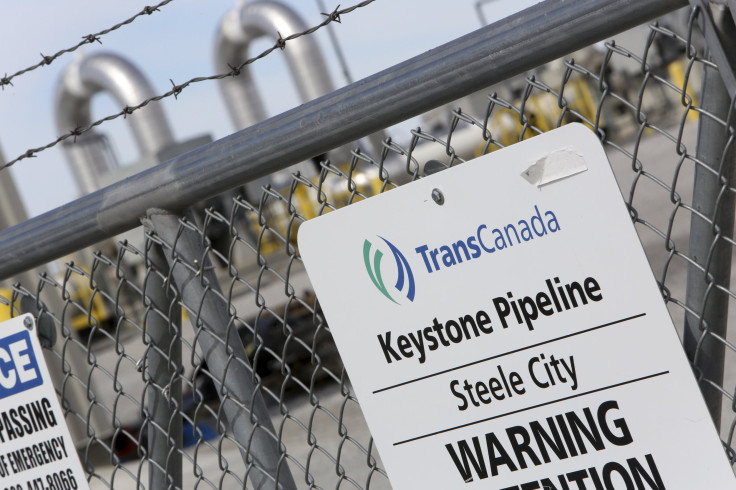Keystone XL Pipeline Decision Likely Delayed Until 2015, Nebraska Lawyers And Activists Say

A final decision on the Keystone XL pipeline now seems unlikely until at least 2015, extending the bitter controversy over the Canada-to-Texas project into its seventh year. The timing for President Barack Obama's verdict largely hinges on a Nebraska Supreme Court ruling over the pipeline’s proposed path in the state, lawyers and activists told Reuters.
The state court is to hear oral arguments on Sept. 5 from landowners who oppose the proposed 300-mile route and state officials who support it. But a final ruling probably won’t be delivered until the new year. "These things typically take three to six months," Jane Kleeb of the group Bold Nebraska, which is leading the landowner opposition to the pipeline, told Reuters. "We have always thought the decision will come in January."
The Obama administration, which has the final say on the entire 1,179-mile project since it crosses an international boundary, said in April that it might await the Nebraska decision before rejecting or approving a presidential permit for the Keystone XL. If the court rules against the state, that would send the pipeline’s builder, TransCanada Corp. (NYSE:TRP), and Nebraska regulators back to the drawing board, delaying construction even further.
It also means that while the Keystone XL controversy is likely to come up in several congressional campaigns, the outcome will remain in limbo past the U.S. midterm elections on Nov. 5, Reuters noted.
If built, the Keystone XL would carry 830,000 barrels of oil a day from western Canada’s oil sands region down to Steele City, Nebraska, where it would connect with an existing southern leg that runs to refineries on the Texas Gulf Coast.
The Nebraska dispute stems from a 2012 state law that gave Republican Gov. Dave Heineman the power to approve the pipeline’s route in the state. Three landowners – Randy Thompson, Suz Straka and Susan Dunavan – challenged the law, and in February, a district court judge ruled in their favor and invalidated the route. Heineman has asked the state Supreme Court to overrule that decision.
Along with the outcome of the Nebraska case, the Obama administration is also weighing the Keystone XL’s projected climate effects. In June 2013, Obama announced that greenhouse gas emissions are a key factor in his decision, saying he would approve the project only if “it does not significantly exacerbate the problem of carbon pollution.”
Earlier this week, a new analysis concluded that the proposed pipeline could have four times the global warming impact as initially assumed – a finding that garnered mixed reviews from experts. Researchers said the U.S. State Department didn’t take into account that added oil from the pipeline would lower global oil prices and drive up consumption, boosting greenhouse gas emissions worldwide.
© Copyright IBTimes 2024. All rights reserved.





















